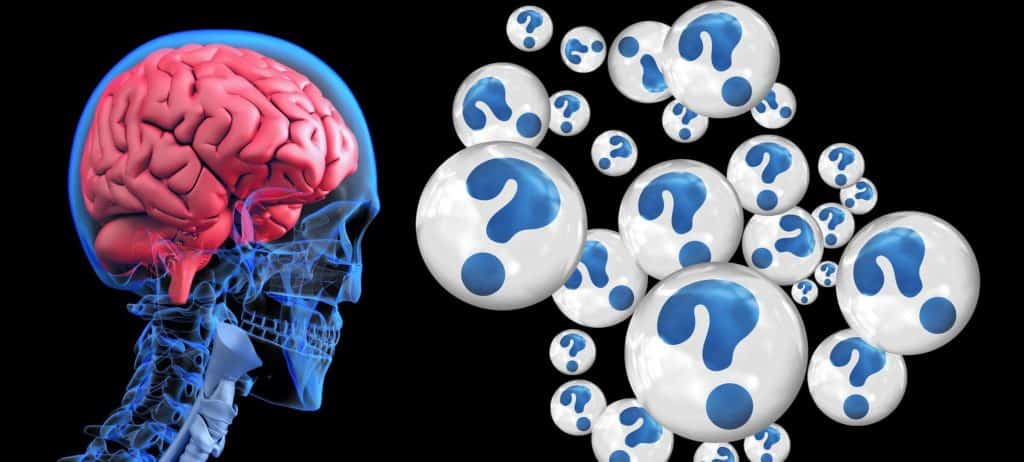Most of us have experienced the embarrassment of running into someone and not remembering their name. Whether we met them last week or ten years ago, we recognize their face, but their name is a blank. Why does that happen?
You cannot remember names because they are arbitrary words that have no synonyms. Mental processes such as the Next-in-Line and the Moses Illusion also contribute to a common occurrence. Techniques to help you remember a person’s name make you focus more on the name before you forget it.
If you have problems recalling names, we have some tips for how to do that. But first, let’s understand why it happens.

It Is Normal to Occasionally Forget
The first thing you need to do is not be hard on yourself. In a 2013 study, 36% reported forgetting people’s names as their number one memory complaint. So, you are not alone.
That may not be so reassuring when you are worried that forgetting names is an early sign of memory loss or a more serious problem. It is normal to occasionally forget where you put something or not remember a word that’s on the tip of your tongue.
Names Are Low-Frequency Words
High-frequency words are those we use all the time. Bread, dog, money, shoe are examples of high-frequency words that we use far more often than names.
Also, we use the substitution trick when we cannot remember a low-frequency word. For example, if we can’t recall the word currency, we can use money. That trick does not work with names.
There Are No Synonyms for Names
Once you learn that domicile is connected to house and home, you are more likely to remember the word. However, names do not have synonyms. A synonym is a word that has a similar meaning. A house is a general word for a structure, while the home is what we call that structure when people live there.
When a person cannot remember a word, they will often use a synonym. If the domicile is on the tip of the tongue, the house works in a pinch.
The word substitution technique does not work for names. The closest thing to a synonym in names is a shortened form, also known as a diminutive form.
But if you cannot recall Rob’s name, what are the chances you will think of Robert?
Names Are Arbitrary
When you hear common words like house or car, you have a general idea of what they mean. You might not picture the same model as someone else, but it will be a vehicle with four wheels. If the person is talking about motorcycles, you will picture a two-wheeled vehicle.
Names, however, do not work like that. The name Robert might mean “bright, fame,” but that does not tell you anything about a person with that name.
Mental Processes Can Affect How We Remember Words
We forget names not only because they are arbitrary and have no synonyms. The way our brains process information can also be the culprit. The Moses Illusion and the Next-in-Line Effect are two.
Our Brains Suffer From the Next-in-Line Effect
A 1973 study at the University of Michigan first demonstrated this effect. In this study, a group of people were asked to read words and later asked to recall them. The subjects could remember most of the words. They consistently had difficulties remembering words said immediately before and after the word they read aloud.

Researchers reasoned that when an individual was next in line to read a word, their attention shifted from what others were saying to what they were about to say. A follow-up study in which the subjects introduced themselves showed the same results.
The researchers called the act of reading words or introducing themselves a “performance.” When we meet a new person, we are taking part in a performance. Instead of listening to their name, we are thinking about what we will say next.
The Moses Illusion Causes Distortions and Misunderstandings
Can a man marry his widow’s sister? If you answered yes, you just experienced the Moses Illusion. Instead of processing every word in the question, you focused on the keywords—marry and widow’s sister. However, a man cannot marry his widow’s sister because he is dead, which is why his wife is a widow.
We focus on keywords to save time and brainpower, and most of the time, it doesn’t cause a problem.
This comprehension error received its name from another question: How many animals did Moses take on the ark? The answer is not two of a kind. Instead, the answer should be none. Noah, not Moses, built the ark. But our minds focus on animals and ark and ignore the name.
When we hear a story about a person, our minds will sometimes substitute that person’s name for someone else we know. Later, when we are retelling the story but use the substituted name, it will appear that we forgot the name. But we didn’t. We did not learn it in the first place.
How Can I Get Better at Remembering Names?
The first trick is related to the Moses Illusion. Make a greater effort to remember the name of someone when you first meet them. Here is our list of tricks to help remember names.
- Use their name in your response. It’s natural to repeat a person’s name back to them when you are introduced. Doing so helps you make that effort to remember their name. It also reduces the Next-in-Line effect, especially if you tell yourself in advance that you will do so. You will already know how your performance will begin, making it easier to focus on what they say.
- Spell it out. Nowadays, even common names can be spelled in a multitude of ways. You can also mishear a name. Ask a person to spell it out, or if that seems too awkward, spelling it out yourself (“Is it Kate with a C or with a K?”). Either way, you are focusing on their name.
- Look for a distinctive feature. Humans instinctively recognize faces, so pay attention to the person’s face. Train your eyes to move over their face in a Z-shaped movement—starting with their eyes and ending with the corners of their mouth. If a feature sticks out, try to link it with the name.
- Create a sentence with their name. You meet someone named Angela Brody, and she is an angel that brought you something. Frank Norway is frankly telling you he has never been to Norway. Interesting associations like those work because they cause us to create something memorable. And, of course, we are paying attention.
- Connect the name to a famous person. Since names are arbitrary, connecting a stranger’s name to a famous person they may resemble provides some context. You have also created a synonym for the name. If you meet someone named George and he has a beard, you can think to yourself–this is what George Clooney would look like with a beard. Odd connections often work more effectively.
- Repeat their name. Remember the next-in-line effect? Once the performance is over, remembering names is easier. So repeat their name after the conversation has ended, either to yourself or someone else. Then repeat it a few minutes later and several more times over the next few days. Try to find a way to bring it into a conversation. Repetition might seem old hat, but it works.
Bottom Line
Forgetting a name happens to all of us, but we can get better at remembering them. These tips work by compensating for the nature of names and the mental processes that cause us to forget them in the first place.


